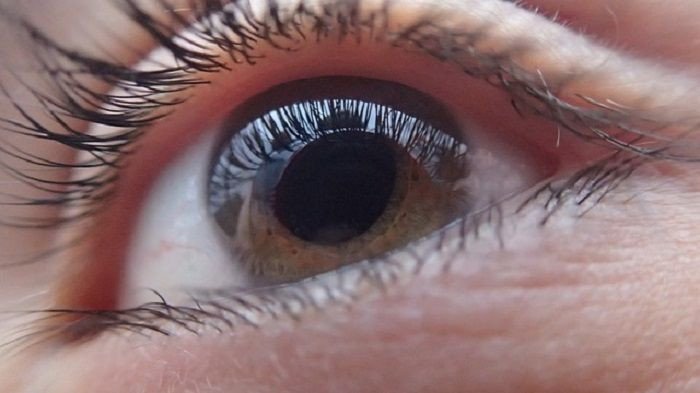Florida Doctor Claims Controversial Stem Cell Treatment May Be Blindness Cure

Blindness affects more than 13 million people in the U.S., according to the Centers for Disease Control and Prevention. Unlike other forms of vision disorders, such as astigmatism and nearsightedness, vision loss is not correctable by standard glasses, contact lenses, or surgery. In fact, there is no known cure for those suffering from blindness, but one doctor in Florida claims to have found one.
Dr. Jeffrey Weiss, from Margate, Fla., says he's restored sight for more than 100 people by injecting their eyes with stem cells derived from their bone marrow, The Baltimore Sun reported. The use of stem cells to treat vision loss isn’t a novel idea, but what makes this treatment controversial is the fact that it was conducted in an unorthodox manner. Weiss, a board-certified ophthalmologist who once taught at Harvard, is currently not affiliated with any university or government institution, but he has performed these treatments on 278 blind patients. He didn’t test his stem cell theories first on lab animals, nor has the treatment been conducted in a controlled clinical trial. What’s more, he made no promises. What you see is what you get.
However, one woman took a leap of faith. Vanna Belton reportedly paid $20,000 to undergo Weiss’ stem cell procedure, despite warnings from local doctors against doing so. Belton, 29, was diagnosed with optic neuritis in 2009 — a condition that inflames the optic nerves — after she suddenly lost her vision. Despite this diagnosis, doctors couldn’t definitively say what caused the vision loss to occur.
During Weiss’ procedure, bone marrow was extracted from Belton’s hip. Weiss and his medical team then used a machine to separate and collect the stem cells, which were then injected into Belton’s eyes.
While Belton says her vision has improved dramatically, Dr. Alexis G. Malkin, who examined Belton before and after the controversial procedure, said Belton’s vision isn’t exactly 20/20. In fact, she deemed Belton still legally blind, with best-corrected vision by eyeglasses or contact lenses still worse than 20/200. And because it’s unclear why Belton lost her vision in the first place, it’s uncertain whether Weiss’ stem cell treatment is responsible for her improved vision.
"What was the mechanism? It's hard to say; we don't know why she lost her vision in the first place,” Malkin told The Sun. "Had she done nothing, would she randomly have gotten better on her own? That seems exceptionally coincidental."
Weiss, himself, can’t even explain how his treatment works, but he thinks the results should speak for themselves.
"We didn't know how penicillin worked for many years, but it saved many lives in the meantime," Weiss said, according to The Sun. "It is hubris to think that something can't work until you understand how it does. ... It is more important what the patient sees, not what I see."
This isn’t the first time doctors have used stem cells to try to cure blindness. Last year, British researchers started clinical trials using treatment derived from embryonic stem cells to treat patients with age-related macular degeneration, a condition that can cause blindness.
Published by Medicaldaily.com



























